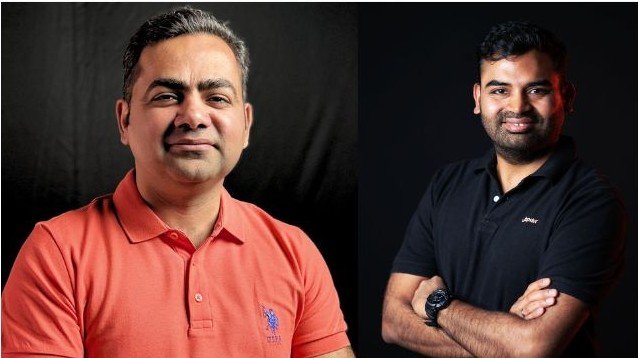While India’s startup darlings were chasing unicorn
status in food delivery and fintech, two management consultants decided to bet
their future on something far leafier. When Sambhav Jain quit his successful
career at KPMG and Akanksha Gupta walked away from her strategic consulting
role at Deloitte in 2021, industry observers might have questioned their
judgment. After all, who leaves the security of Big Four consulting to
cultivate gardens?
Yet their seemingly unconventional pivot represents a
larger shift in Indian entrepreneurship where seasoned professionals are
applying business expertise to solve everyday problems, uncovering
billion-dollar opportunities in the process.
Sambhav, a Chartered Accountant with an MBA from
IIM-Ahmedabad, and Akanksha, armed with her ISB credentials, had built
impressive corporate careers. But beneath their success stories lay a shared
passion that would eventually change their carefully planned trajectories.
For Sambhav, gardening was
not a hobby but a deep inclination towards nature, something he had always
embraced. His profound connection to the planet had led him to conduct over 150
gardening workshops for corporate giants like Google, DE Shaw, and Coursera.
Meanwhile, Akanksha’s green awakening came during the pandemic, when cities
went into lockdown and people found solace in their homes. She discovered the
therapeutic power of nurturing plants, developing a keen interest in creating
green sanctuaries within the confines of homes and shared spaces.
With lockdowns in place and no way to visit physical
nurseries, there was no avenue for plant parents to get their leafy companions
anymore. So, what they saw wasn’t just a $3 billion market-they saw balconies
devoid of greenery, children who believed gardening was rocket science, and a
nation yearning for a connection with nature. Being passionate gardeners
themselves, they witnessed the frustration of fellow plant enthusiasts who
struggled with poor plant quality,
delayed deliveries, and exorbitant shipping costs from online retailers.
Plants were being shipped across vast distances,
arriving wilted and stressed after days in transit boxes filled with plastic
packaging. Sambhav’s market analysis uncovered that the majority of plastic
waste in e-commerce came from packaging alone, with nearly half of all plastic
being used just once before being discarded.
Their breakthrough insight came from recognizing that
plants, unlike other e-commerce products, are living entities that require
intense care and proper handling. This realization birthed their philosophy of
“Green at the speed of light”-growing fresh plants, tending to them
with effort and care, and delivering them within 24 hours.
The Indian gardening market they entered was vast and
rapidly expanding, valued at approximately $3 billion with a projected 15
percent CAGR growth rate. This represented a massive opportunity in a sector
that had been largely overlooked by many entrepreneurs, who dismissed gardening
as difficult to scale. However, the husband-wife team saw beyond these
challenges, recognizing that India’s growing population was increasingly
seeking ways to reconnect with nature.
At the heart of Urvann’s exponential
growth across cities lies a budding work culture built on three foundational
pillars: inclusivity, sustainability, and an open-door policy. The company has
nurtured an environment where every team member feels empowered to contribute
ideas and strategies. This inclusive culture has created a flood of creative
solutions that have propelled Urvann from a two-person startup to a 200+ member
organization spanning 9 cities and 350+ pin codes.
Sustainability is not merely a business strategy at
Urvann but a core value that permeates every decision. Operating under their
motto “Zero wastage, zero compromise”, the company’s pledge to
plastic-free packaging has saved 350,000 kilograms of plastic waste. At the
same time, their 200+ electric vehicle fleet has conserved 50,000 liters of
fuel. This environmental consciousness extends to their workplace culture,
where employees are encouraged to champion environmentally responsible
practices.
Who would have predicted that two MBA graduates with
stellar consulting careers would find their fortune in soil and seeds? Today,
Urvann has become a household name among India’s plant parents, proving that
the most unconventional ideas often yield extraordinary results.
From 2 cities to soon covering the nation, Urvann’s
dream is to unite plant lovers
with the best variety of leafy greens at competitive prices. In boardrooms across
the country, executives still debate market penetration strategies and customer
acquisition costs. But in a small Delhi apartment where it all began, two
former consultants proved that sometimes the most revolutionary business models
start with the most fundamental human need-the desire to nurture life.

.webp)

